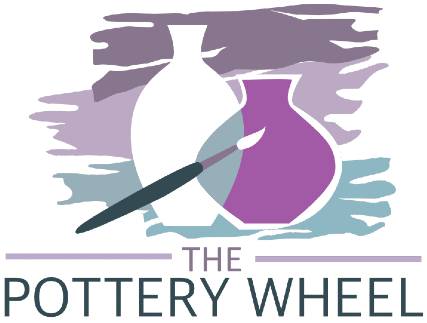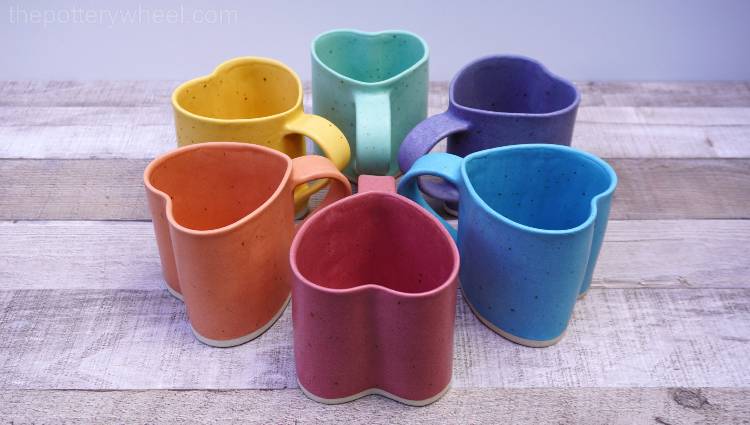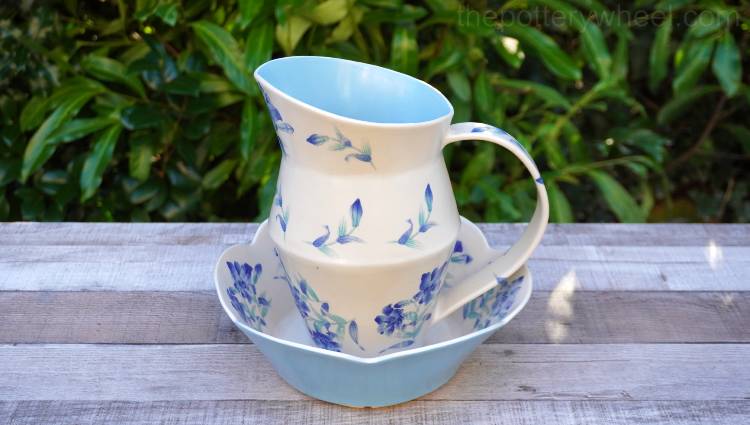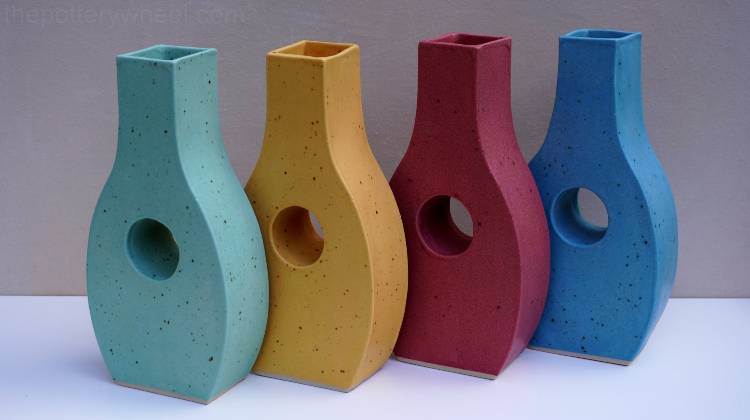Your cart is currently empty!
How to Know if My Pottery is Valuable – 6 Factors at Play
Published:
Last Updated:
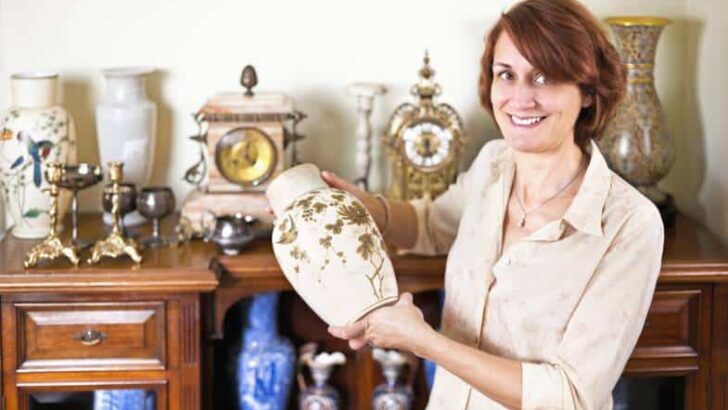
Affiliate Disclaimer
As an affiliate, we may earn a commission from qualifying purchases. We get commissions for purchases made through links on this website from Amazon and other third parties.
There are several reasons why you may want to know if your pottery is valuable and by how much. You could be looking to sell it, know the price needed for its insurance, settlement, probate, trust planning, or collection. Whatever the case, it is important to know the worth of your pottery.
Different pieces of pottery are valued differently based on factors or criteria that are discussed below in the article. We will also outline ways you can determine the approximate value of your art pottery.
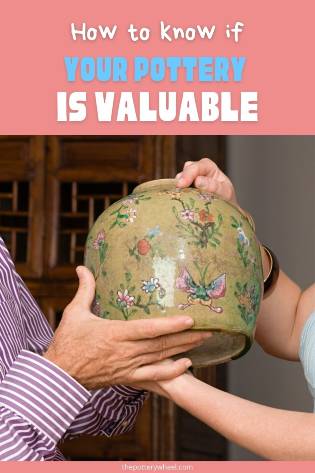
Criteria to Tell if your Pottery is Valuable
Here are the 6 main ways to tell if your pottery is valuable…
1) Condition
The condition of a piece of pottery will dictate its value. When the piece is in perfect shape, it is said to be in mint condition. This means that it has no cracks, no chips, no breaks, and basically, it is as good as new. Pottery that is in mint condition is extremely valuable.
Old pieces that are still in mint condition tend to attract high prices in the market and during auctions. These pieces have an original finish and have not undergone repair or restoration, hence the high value.
No matter how minor it is, damage can really affect the value of a piece. For instance, a small crack can significantly bring down the value of a glass item. Things that you should look at to determine the condition of your pottery include chips, cracks, signs of repair, and broken noses or missing fingers if you own a figurine.
2) Rarity
When an item is rare, it means that there are not many of them around. Therefore, only a few people own that type of pottery. The rarity of ceramics can be due to several factors. For one, it could be because the item stopped being produced a long time ago.
It could also be because only a few pieces were made, perhaps because most people could not afford it at the time. It is also a possibility that the item was made in large numbers, but only a few pieces remain today. This is the case with pottery, such as porcelain dishes and crystal stemware.
Pieces with unique designs, unusual colors, and uncommon sizes and shapes also qualify as rare items. These items tend to be hard to reproduce and are very valuable.
3) Authenticity
How original is the piece? The authenticity of an item depends on how real and original it is. To determine the authenticity of pottery, there are factors you would have to put into consideration.
Firstly, check if it has a signature or markings on the base and if these are genuine. If you’d like to know more about how to identify pottery with no markings, check out this article that I wrote. I could save you hours of frustration.
Secondly, check the time period indicated on the piece and determine whether it is correct. Also, research on the maker of the piece and establish if they are the real artists behind the art. Also, handmade pieces have more air of authenticity about them, and they tend to fetch top dollar compared to other pieces.
To accurately determine the authenticity of pottery, you ought to know how to check factors like the texture, color, materials, and design of a piece. As expected, the more authentic your pottery is the higher its value.
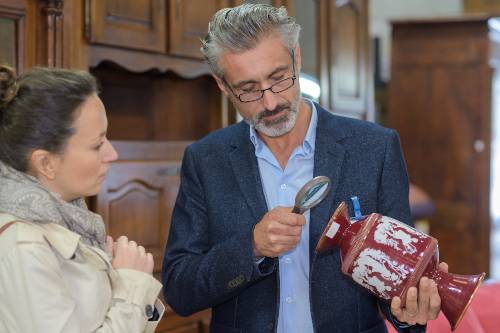
4) Aesthetics
An aesthetic piece is one that has all its elements blended together in perfect harmony. The colors compliment each other and go with the patterns and the size of the piece producing an overall pleasant appearance.
Usually, aesthetic value is personal, and what is appealing for one person may not be very appealing for the next person. So, pieces with a universal aesthetic appeal tend to be very valuable as they are a rare find.
5) Desirability
Is the item in demand? Are people willing to pay top dollar to acquire such a piece? Do your due diligence and see what the current market situation looks like concerning your pottery. If many people are interested in acquiring it, then it is desirable and, subsequently, valuable.
6) Provenance
Provenance refers to the record of past ownership of a piece. If past owners are well-known, high-status persons, then the value of the piece increases. Pottery is also very valuable when it has a rich history; for instance, a piece that has been passed down through generations like an heirloom becomes super important.
Usually, it is easier to trace the ownership record of contemporary pieces than much older ones. In any case, pottery that has impressive provenance has a much higher value than those without.
How to Find Out if Your Pottery is Valuable
Here are 3 suggestions about how to establish if your pottery is valuable…
Carry Out Research
The best place to research the monetary worth of your pottery is online. The internet has an enormous wealth of information concerning pottery and its value. If your item is relatively common, check past auctions of similar items on sites like eBay. If your item is a rare antique, it would be difficult to find out what it is worth this way as it would be hard to find items that are identical to yours.
Limit your research to pieces that have already been sold as the buying price echoes the real value of the item. Also, the asking prices of most sellers tend to be higher than what is actually paid for the price, sometimes by two or three times.
You ought to also check the condition descriptions of the pieces. The rule of thumb is that damaged pieces usually fetch 50-75% of their value when in good condition, and this includes even the smallest damage. While you are still there, look up the artists behind your pottery and check the value of their art, as this will help approximate the value of your pottery.
Online Pottery Appraisals
If you can’t determine the value of your pottery on your own, you should turn to online pottery appraisals for their services. There are several online art pottery appraisals for both single pieces and pottery collections.
Even as you rely on these services, you have to be smart about it. Ensure that the appraiser you are working with is experienced in art pottery and well-versed with current market prices. Someone without the necessary knowledge and skill may end up misvaluing your art.
More importantly, you should keep in mind that the value of pottery swings in much the same way as stocks or real estate, so your appraiser has to be on top of his game. Factors considered during the appraisal of pottery include the condition of the item, its rarity, and aesthetics.
Auction
Put your piece up for auction and let competitive bidding determine its value. For it to be effective, the auction should have a good attendance list and must have been advertised well. Through an auction, you will be able to know how much a willing buyer would pay for your item.
There are both on-site and online auction sites, so you should be able to choose whichever is more convenient for you. Online auction sites include eBay, and live internet bidding by Just Art Pottery Auctions. It is also important to select an effective auctioneer.
An example of pottery that fetched a high price during an auction is the Jian tea bowl, a Chinese ceramic piece that sold for more than $ 11 million. While it is only about 5 inches in diameter, the piece was in mint condition, was stunning, and had impressive provenance.
Final Thoughts
Some pieces of pottery are very valuable, while others are close to worthless. The value of art pottery can be determined using criteria like the condition of the piece, its condition, rarity, desirability, authenticity, provenance, and aesthetics. You can use these 6 factors to begin establishing if your pottery is valuable.
